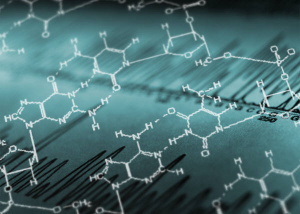 How do you know if there’s researcher potential within you? Nearly every time someone interviews me about prospect research, they ask me “what are the key components of a great prospect researcher?” Here is where I start:
How do you know if there’s researcher potential within you? Nearly every time someone interviews me about prospect research, they ask me “what are the key components of a great prospect researcher?” Here is where I start:
- Natural curiosity
- Tenacity, paired with…
- The ability to know when to stop
These, I think are the top three. The first, natural curiosity, I like to describe in this way:
Imagine a group of friends sitting at a restaurant. As the conversation passes from one topic to another, there is invariably a question no one can remember the answer to (like “Where were the 1966 World Cup finals played?”). A natural researcher is the person at the table who gets twitchy and can’t move on until they’ve pulled out their smart phone and looked it up.
Tenacity, to me, is not just stick-to-it-iveness. It’s the ability to follow the bread crumbs up the stairs of the path – you may be huffing and puffing through the effort, but it’s worth it to get to the top. For example:
A colleague I am training is researching a gentleman who recently made a very large gift to the athletics program at his alma mater. His name is not distinctively unusual, and no information was provided about his profession or where he resides. The university supplied that he serves on its athletic council. Here are the first few bread crumbs that she uses to find more information about him:
– His name (in both long and short format), is entered in the search box on the university’s main website, the athletics department web page, and two search engines (both with and without the university’s name, and with and without the city name).
– The name of the university, the name of the athletics council, and the words “roster,” “list,” or “members” are entered into the same search boxes.
Each time a new sliver of information comes up, she tracks it down. She finds which sport he donated to, and uses that information to craft her searches. She discovers that he attends every game, so she gathers that he’s probably local to the college. That moves her toward a regional search. It’s a painstaking process, but she will come across a clear path, or decide when it’s time to move on.
Knowing When To Say When
It’s a tough call, that “knowing when to stop” thing. Sometimes you don’t want to give up the search – you’re convinced that the information is out there somewhere. When you get to that point, that’s when you have to stop – either to give your brain a chance to work it out subconsciously, or to just move on to the next prospect because you just don’t have the luxury of time. Set an alarm or just make a note of the time when you research.
Here at HBG, we stop after an hour if we’re hitting a brick wall. We call our client to let them know that it may not be worth it to continue, to see if they have any further intelligence that will help us, and to ask if it’s okay if we write up what we’ve found so far.
Which brings me to characteristic number four…
4. The ability to write clearly, concisely, and compellingly
It’s not all about the research. A great prospect researcher needs to be able to gather, synthesize, and communicate the most relevant pieces of information that will enable fundraisers to do their jobs well.
5. A team player
Finally, a great researcher is excited about their organization’s mission, and about sharing what they know to help further that mission. They are interested in continuing their own education so that they grow personally and remain a key player. Finally, they seek to understand their organization’s goals (fundraising, programmatic, strategic, organizational), and are a key intelligence advisor based on their knowledge of these areas.
That’s my list! What are the characteristics that you think make up a good researcher?
